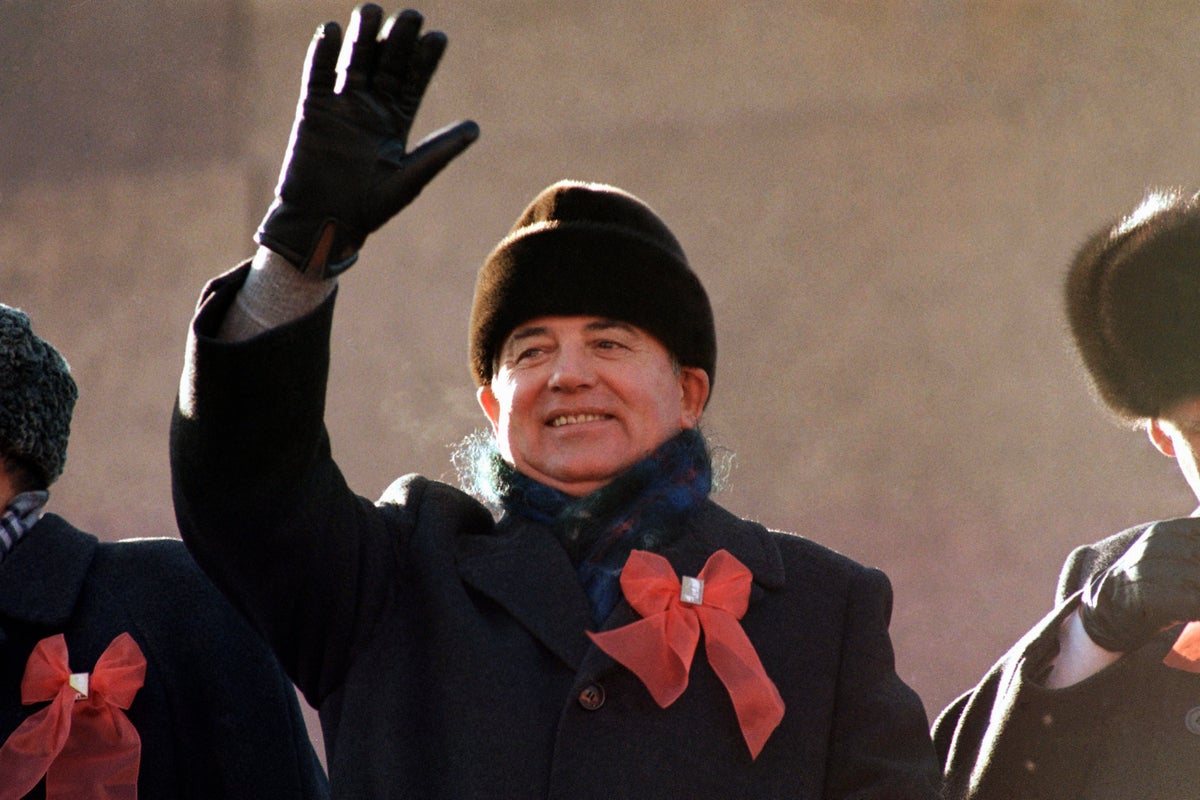
The last Soviet leader, Mikhail Mikhail Gorbachev, has died at the age of 91 after a serious illness.
Mr Gorbachev, who became the head of the Societ Party in 1985, is best known for ending the Cold War, removing the Iron Curtain that had divided Europe since World War Two and bringing about the reunification of Germany.
As we look back at the Russian leader who changed history, here are some key moments of the Gorbachev era:
March 1985
Mr Gorbachev, aged 54 and the youngest member of the Politburo – the principal policymaking committee of a communist party – became the General Secretary of the Communist Party. He launched a programme of perestroika (restructuring) and glasnot (openess) to move the country out of political and economic stagnation.
April 1986
An explosion at Chernobyl nuclear reactor spreads a radioactive cloud across Europe. Soviet authorities admit it only three days later, raising doubts about the commitment to glasnot.
October 1987
Prominent Russian reformer Boris Yeltsin clashes with Mr Gorbachev over the pace of the state’s restructure and leaves the ruling Politburo.
December 1987
Mr Gorbachev and Ronald Reagan sign the first treaty to cut nuclear arsenals in Washington. All Soviet and US intermediate-range missiles are to be dismantled.
October 1988
Mr Gorbachev consolidates power by becoming chairman of the executive committee of the Supreme Soviet, the national legislature.
November 1989
Popular revolutions sweep away communist governments in East Germany and the rest of Eastern Europe. The Soviet Union makes no attempt to intervene as its satellite regimes fall.
December 1989
Mr Gorbachev and US President George H.W. Bush, at a summit in Malta, hail the end of the Cold War.
February 1990
The Communist Party surrenders its guaranteed monopoly of power. Parliament agrees to give Mr Gorbachev an executive presidency, with a big increase in powers. Pro-reform demonstrators hold huge rallies across the Soviet Union.
October 1990
East and West Germany unite after intensive six-power negotiations in which Mr Gorbachev plays a key role. The Soviet parliament approves plans to abandon Communist central planning of the economy in favour of a market economy. Gorbachev is awarded the Nobel Peace Prize.
November 1990
Parliament empowers Mr Gorbachev to issue decrees in almost all sectors of public activity. The first draft of a Union Treaty proposed by Gorbachev gives substantial powers to the 15 republics, but four - Latvia, Lithuania, Estonia and Georgia - refuse to sign.
March 1991
A referendum produces an overwhelming majority for preserving the Soviet Union as a “federation of equal sovereign republics” but six republics boycott the vote.
April 1991
The Warsaw Pact of East European nations disbanded
June 1991
Boris Yeltsin is elected president of Russia
19 August 1991
Citing Mr Gorbachev’s alleged ill health, his deputy Gennady Yanayev takes over as president of the head at the hardline Communist junta. A state of emergency is declared in some areas. Estonian parliament declares independence.
21 August 1991
The coup collapses, destroying the conservative caucus at the centre and giving a huge boost to separatists in republics. The Latvian parliament declares independence.
24 August 1991
Gorbachev resigns as leader of the Communist Party, orders the seizure by the state of its property, bans it from all state organisations and suggests it dissolve itself. The Ukrainian parliament declares independence. Within weeks, all but Kazakhstan and Russia have done the same.
6 September 1991
Soviet supreme legislature recognises the independence of Lithuania, Latvia and Estonia. Congress scraps the 1922 Union Treaty and hands power to an interim authority pending the signature of the treaty for a voluntary Union of Sovereign States.
8 December 1991
Russia, Ukraine and Byelorussia proclaim the Commonwealth of Independent States with no role for a central authority or Gorbachev. At first, he resists new order and refuses to resign but slowly comes around to accepting the inevitable.
25 December 1991
Gorbachev resigns as president of the Soviet Union, which is formally dissolved the following day.
Additional reporting by Reuters







